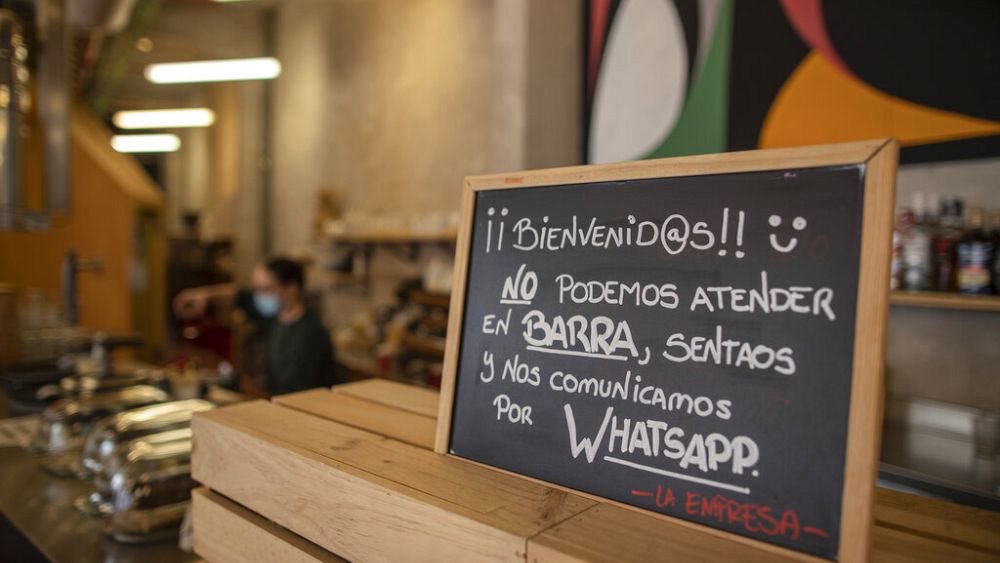Spain is trialling a four-day working week to determine if it could help companies and workers become more productive.
Alba Herrero is a waitress in La Francachela restaurant in Madrid and currently works four days a week, which has allowed her to study to become a teacher.
“It allows you to have more spare time. At the end of the day, you have three free days, instead of two,” she said.
The owners of La Francachela restaurant decided to adopt a 32-hour weekly shift after the first COVID-19 lockdown, when they had to work while looking after their children. They say that it made them realise the importance of having a work-life balance.
“Private life and family life is also part of the economy. It also needs to be taken care of, and we need to put it in front,” said Maria Alvarez, a co-owner of La Francachela.
By reorganising schedules and introducing simple technology improvements, like taking orders via WhatsApp, Alba now does her work in fewer hours without a salary decrease.
“We are now a much more efficient company thanks to our self-imposed target of adopting a four-day work week,” Alvarez says. “This has forced us to rethink in order to meet our goal.”
Pilot to determine four-day week feasibility
Más País, the party behind the initiative, believes shorter shifts are the future in a post-pandemic world with some workers seeking more meaningful lives outside of work.
“We are living a life where there’s no time for anything. We live a stressful life consisting of going from home to work, from work to home, and doing our shopping during the weekend,” said Íñigo Errejón, an MP from Más País.
“We end exhausted and start all over again on Monday. That’s not life.”
Proponents of a four-day week also argue that it would reduce workers’ commutes. They also say the pandemic has moved work from the office to the home, allowing for more flexibility in people’s daily schedules.
But some warn that remote working does also lead to longer shifts.
Jose Luis Casero, President of the National Commission for the Rationalisation of Spanish Schedules, said that you have to clock off online as you would in the office.
“You switch off, and that’s it. You have to disconnect so you have a life after work.”








